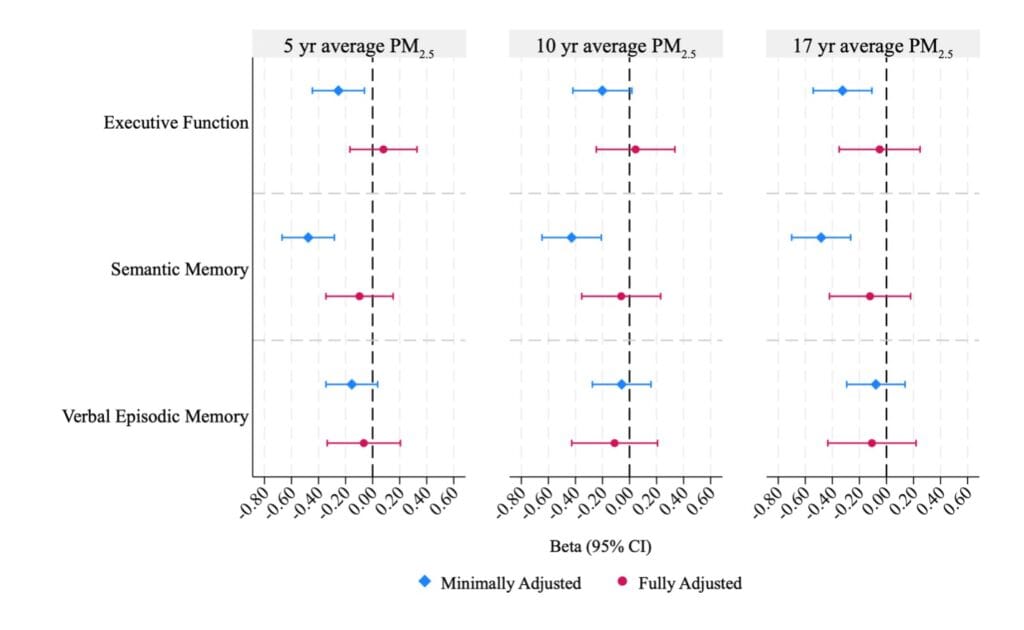Environment/Climate Change
Fine particulate air pollution exposure and late-life cognitive function in the KHANDLE cohort Kathryn C. Conlon* Kathryn Conlon Stacey E. Alexeeff Chinomnso Okorie Paola Gilsanz Joel Schwartz Amanda Goodrich Rachel Whitmer
Background: Long-term exposure to fine particulate air pollution (PM<2.5μm in diameter, PM2.5) may be associated with cognitive function in older adults. However, most studies examining this question have lacked racial and ethnic diversity.
Methods: The study included data from N=1670 adults aged ≥65 in the ethnically diverse Kaiser Healthy Aging and Diverse Life Experiences (KHANDLE) study. Cognitive outcomes across three domains (semantic memory, verbal episodic memory, and executive function) were measured using the Spanish and English Neuropsychological Assessment Scales and standardized to Z-scores. PM2.5 exposures during 2000-2016 were generated at a high resolution of 1km using ensemble modeling that integrated three machine learning algorithms and linked to geocoded residential addresses. We examined the association between long-term exposure to PM2.5 (5-year, 10-year and 17-year averages) and each cognitive function outcome using linear regression models. Minimally adjusted models adjusted for age only and fully adjusted models adjusted for age, sex, race/ethnicity, marital status, education, and neighborhood income.
Results: Associations of long-term PM2.5 exposure with measures of cognition are shown in the Figure. In minimally adjusted models, a 5 μg/m3 increase in 17-year average PM2.5 exposure was associated with lower semantic memory (β = -0.48; 95% CI: [-0.70, -0.26]), and lower executive function (β = -0.32; 95% CI: [-0.54, -0.11]), but not associated with verbal episodic memory (β = -0.08; 95% CI: [-0.29, 0.14]). In fully adjusted models, 17-year average PM2.5 exposure was not associated with any cognitive function outcomes. Results were generally similar for 5-year average and 10-year average PM2.5 exposures.
Conclusion: Long-term PM2.5 exposure was not associated with cognitive function in this diverse cohort. Long-term PM2.5 exposure is a public health concern since it has been associated with adverse health outcomes in other studies.

